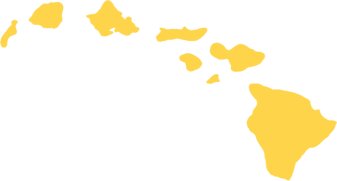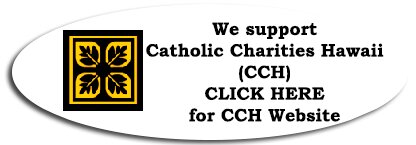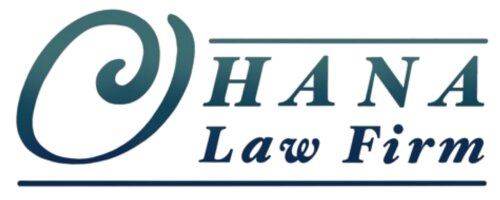Best Ethics and Professional Responsibility Lawyers in Hawaii
Share your needs with us, get contacted by law firms.
Free. Takes 2 min.
Or refine your search by selecting a city:
List of the best lawyers in Hawaii, United States
About Ethics and Professional Responsibility Law in Hawaii, United States
Ethics and Professional Responsibility law in Hawaii focuses on the rules and standards that guide the behavior of lawyers and legal professionals. These regulations aim to protect clients, uphold the integrity of the legal profession, and ensure that all practitioners act honestly, fairly, and with due diligence. In Hawaii, these principles are governed by bodies such as the Hawaii Supreme Court and the Office of Disciplinary Counsel, which oversee the conduct of attorneys and enforce the established Rules of Professional Conduct.
Why You May Need a Lawyer
You may need a lawyer with expertise in Ethics and Professional Responsibility if you are:
- A legal professional facing a complaint or disciplinary action from a client, another attorney, or the Hawaii disciplinary authorities.
- An individual who believes your attorney has acted unethically, such as by breaching confidentiality, mishandling funds, or having a conflict of interest.
- A lawyer seeking guidance on ethical dilemmas about client representation, advertising, fee arrangements, or professional boundaries.
- Experiencing issues related to attorney withdrawal from representation or concerns about how a legal matter was handled.
- Part of a law firm or organization needing policies on professional responsibility or compliance with updated ethical rules in Hawaii.
Engaging a lawyer in these situations can help protect your interests, clarify your obligations, and ensure compliance with legal and ethical standards.
Local Laws Overview
In Hawaii, the main source of rules governing legal ethics is the Hawaii Rules of Professional Conduct (HRPC), which are modeled after the American Bar Association’s Model Rules but contain unique local provisions. These rules cover various issues including client confidentiality, conflicts of interest, attorney advertising, handling of client funds, and obligations to the court and third parties.
Enforcement of these rules is handled by the Disciplinary Board of the Hawaii Supreme Court and the Office of Disciplinary Counsel (ODC). Complaints against attorneys are investigated by the ODC, and disciplinary actions can range from private reprimands to suspension or disbarment, depending on the seriousness of the conduct.
Hawaii lawyers are also required to maintain malpractice insurance, participate in continuing legal education focused on ethics, and maintain appropriate trust account records as regulated by the state.
Frequently Asked Questions
What should I do if I think my lawyer acted unethically?
You should first try to address your concerns directly with your lawyer if you feel comfortable. If issues remain unresolved or are serious, you can file a complaint with the Office of Disciplinary Counsel in Hawaii.
What are some common examples of attorney misconduct?
Common forms include conflict of interest, failure to communicate, misuse of client funds, neglect of a legal matter, lack of competence, and breach of confidentiality.
Is there a time limit for filing an ethics complaint in Hawaii?
There is no specific statute of limitations for filing a disciplinary complaint, but it is advisable to act as soon as possible to assist with a timely investigation.
Can I recover damages if my lawyer is disciplined?
Disciplinary actions are meant to address unethical behavior but do not automatically provide compensation. You may need to file a separate civil claim for damages.
How are complaints against attorneys investigated?
Complaints are reviewed by the Office of Disciplinary Counsel, which may request documents, conduct interviews, and determine whether formal proceedings are necessary.
What are the possible outcomes of a disciplinary hearing?
Outcomes can include dismissal of the complaint, private reprimand, public censure, suspension, or disbarment of the attorney.
Are attorney ethics rules the same in every state?
While there are similarities nationwide, each state-including Hawaii-has its own version of the Rules of Professional Conduct and unique local procedures.
Do the Hawaii Rules of Professional Conduct apply to out-of-state attorneys practicing in Hawaii?
Yes, any attorney practicing law in Hawaii-even on a temporary basis-must follow the Hawaii Rules of Professional Conduct.
What should I do if I am a lawyer facing a complaint?
Seek immediate guidance from a qualified ethics attorney to understand your rights, responsibilities, and the proper way to respond to the allegations.
Are all complaints against lawyers made public?
Not all complaints lead to public discipline. Many are resolved privately or dismissed, but serious violations may result in public disclosure by the Hawaii Supreme Court or the ODC.
Additional Resources
- Office of Disciplinary Counsel (ODC) - Investigates complaints and enforces attorney discipline in Hawaii.
- Hawaii State Bar Association (HSBA) - Provides information on the Rules of Professional Conduct, attorney referrals, and resources for continuing legal education.
- Hawaii Supreme Court Disciplinary Board - The authority responsible for judicial oversight of lawyer ethics issues and discipline.
- Legal Aid Society of Hawaii - Offers general legal resources and may provide assistance for some ethics or complaint-related matters.
Next Steps
If you need legal assistance in an Ethics and Professional Responsibility matter in Hawaii, consider the following steps:
- Gather all relevant documents, including contracts, correspondence, and any records related to your complaint or concern.
- Contact the Office of Disciplinary Counsel if you wish to report a potential ethics violation.
- Consult with a qualified Hawaii ethics attorney experienced in professional responsibility issues, especially if you are the subject of a complaint.
- Review the Hawaii Rules of Professional Conduct for an understanding of rights and obligations.
- Monitor deadlines and respond promptly to any official communications or requests for information.
Acting proactively and getting specialized legal advice can help protect your interests, resolve disputes, and ensure the integrity of your professional or client relationships in Hawaii.
Lawzana helps you find the best lawyers and law firms in Hawaii through a curated and pre-screened list of qualified legal professionals. Our platform offers rankings and detailed profiles of attorneys and law firms, allowing you to compare based on practice areas, including Ethics and Professional Responsibility, experience, and client feedback.
Each profile includes a description of the firm's areas of practice, client reviews, team members and partners, year of establishment, spoken languages, office locations, contact information, social media presence, and any published articles or resources. Most firms on our platform speak English and are experienced in both local and international legal matters.
Get a quote from top-rated law firms in Hawaii, United States — quickly, securely, and without unnecessary hassle.
Disclaimer:
The information provided on this page is for general informational purposes only and does not constitute legal advice. While we strive to ensure the accuracy and relevance of the content, legal information may change over time, and interpretations of the law can vary. You should always consult with a qualified legal professional for advice specific to your situation.
We disclaim all liability for actions taken or not taken based on the content of this page. If you believe any information is incorrect or outdated, please contact us, and we will review and update it where appropriate.
Browse ethics and professional responsibility law firms by city in Hawaii
Refine your search by selecting a city.













